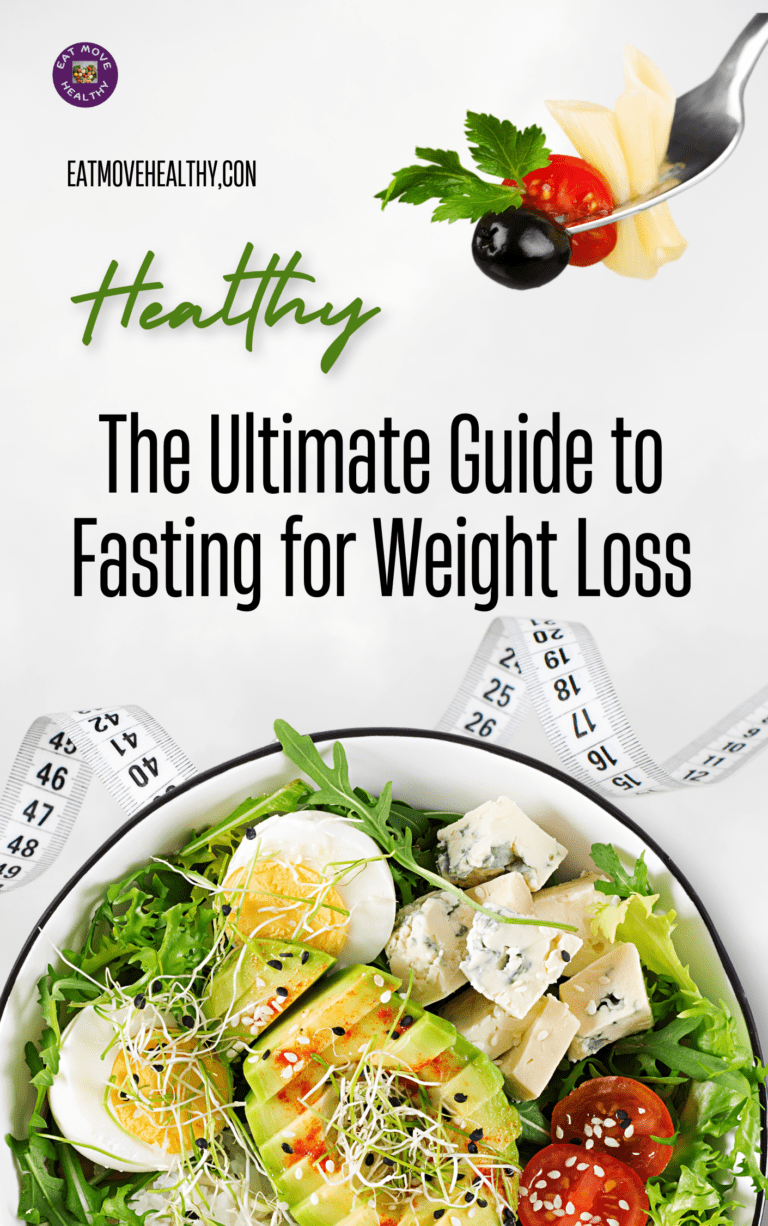Transitioning to a Plant-Based Diet The Rise of a Whole Food Plant-Based Diet: Benefits, Challenges,…
As an Amazon Associate I earn from qualifying purchases.
What is the Best Diet for You
Plant-Based or Fasting

A Complete Analysis of Plant-Based and Fasting Comparison
Plant-Based: Fueling Your Body with the Best of Nature
Consuming foods originating from plants, such as fruits, vegetables, whole grains, legumes, nuts, and seeds. It encourages avoiding or consuming only any amount of animal products, such as meat, dairy, and eggs. This dietary decision is motivated by several variables, such as moral, environmental, and health considerations.
Advantages:
A better intake of nutrients: Foods made from plants are abundant in fiber, vitamins, minerals, and other vital elements. They offer a variety of phytochemicals, antioxidants, and substances that are good for your health.
A plant-based diet has been found in studies to lower the risk of cardiovascular illnesses. It could lessen the risk of developing heart-related diseases, lower blood pressure, and raise cholesterol levels.
Weight management: Plant-based meals’ high fiber content can help with satiety and weight loss objectives.
Lower Risk of Chronic Illnesses: Consuming a vegan diet has reduced the risk of obesity, type 2 diabetes, and other chronic diseases.
Although plants may supply an acceptable quantity of protein, providing a diverse and balanced consumption to fulfill individual demands is still essential. Protein sources include beans, tofu, tempeh, quinoa, and seitan.
Vitamin B12: Since vitamin B12 is found in animal sources, those who strictly adhere to a vegan diet should consider taking supplements or eating foods that have been fortified.
Dietary Planning: Appropriate planning is necessary to provide a healthy intake of minerals, such as iron, calcium, zinc, and omega-3 fatty acids. These needs can be met with the guidance of a certified dietician and various plant-based menus.
Lets Learn about the Doctors
Dr. Michael Greger:
- Background: Dr. Michael Greger is a physician, best-selling author, and internationally recognized speaker on nutrition, food safety, and public health issues.
- Notable Work: He is known for his website and nonprofit organization, NutritionFacts.org, which provides evidence-based information on various nutrition topics.
- Focus: Dr. Greger strongly advocates for a whole-food, plant-based nutrition and has authored books like “How Not to Die” and “How to Survive a Pandemic.“
- Dr. T. Colin Campbell:
- Background: Dr. T. Colin Campbell is a biochemist and nutrition researcher. He is a professor emeritus at Cornell University and is widely recognized for his extensive work in nutrition.
- Notable Work: Dr. Campbell’s groundbreaking research and the book “The China Study” have contributed significantly to promoting plant-based nutrition.
- Focus: He emphasizes the importance of whole, plant-based foods in preventing and treating chronic diseases.
- Dr. Neal Barnard:
- Background: Dr. Neal Barnard is a clinical researcher, author, and founder of the Physicians Committee for Responsible Medicine (PCRM).
- Notable Work: PCRM advocates for plant-based diets and researches the health benefits of such diets.
- Focus: Dr. Barnard’s work is focused on the role of nutrition in diabetes, obesity, and cancer, and he promotes plant-based diets for improving health.
- Dr. Caldwell Esselstyn:
- Background: Dr. Caldwell Esselstyn is a retired surgeon and former Olympic rowing champion.
- Notable Work: He gained recognition for his long-term research on preventing and reversing heart disease through plant-based nutrition.
- Focus: Dr. Esselstyn’s work emphasizes the elimination of high-fat, processed foods and adopting a plant-based, whole-food diet for heart health.
- Prevent and Reverse Heart Disease: The Revolutionary, Scientifically Proven, Nutrition-Based Cure by Caldwell B. Esselstyn Jr. M.D.
- Dr. John McDougall:
- Background: Dr. John McDougall is a physician, best-selling author, and founder of the McDougall Program.
- Notable Work: He has authored several books, including “The Starch Solution,” and is known for advocating a starch-based, plant-based diet for overall health and weight loss.
- Focus: Dr. McDougall’s approach centers on the health benefits of whole grains, starches, and plant foods.
- Dr. Joel Fuhrman:
- Background: Dr. Joel Fuhrman is a family physician, author, and nutritional researcher.
- Notable Work: He is the author of books like “Eat to Live” and is known for his Nutritarian diet, which emphasizes nutrient-dense, plant-rich foods.
- Focus: Dr. Fuhrman promotes plant-based nutrition for its potential to prevent and treat chronic diseases.
Utilizing the Power of Intermittent Abstinence via Fasting
Fasting entails avoiding eating or drinking for a set amount of time. There are several ways to fast, including alternate-day, prolonged, and intermittent fasting. Due to its potential advantages for weight control, metabolic health, and cellular rejuvenation, this strategy has grown in favor.
Benefits of Fasting Weight Reduction and Metabolic Health: Fasting can reduce weight by encouraging a calorie deficit and enhancing metabolic indicators like insulin sensitivity and fat utilization.
Cellular Repair: While fasting, the body starts the process of autophagy, in which damaged cells are digested and recycled. This cellular renewal may affect the length of life and general health.
Simplicity: Fasting may be a simple strategy since it doesn’t need elaborate meal preparation or dietary restrictions.
Individual variations should be considered during fasting: Individuals may respond differently. Paying attention to your body’s signals and customizing fasting regimens to your demands and general health is critical.
Nutrient Intake: When fasting, you must ensure you get enough nutrients throughout your meal windows. Nutrient deficits can be avoided by choosing nutrient-dense meals and seeking medical advice.
Sustainability: For some people, adhering to fasting regimens over the long term might be difficult. It is crucial to consider individual preferences and lifestyle circumstances while figuring out whether or not this method is workable and sustainable.
Conclusion
Fasting and a plant-based diet each have their advantages and limitations. An abundant supply of nutrients is provided by a vegan diet, which also supports sustainable food options while increasing general health and lowering the risk of chronic illnesses. Contrarily, fasting uses the body’s inherent capacity for renewal and may support healthy weight control and metabolic function
The decision between these dietary strategies ultimately comes down to personal tastes, health objectives, and lifestyle considerations. Consultations with trained dietitians and medical specialists can offer individualized advice and guarantee that these strategies are appropriate for certain people.
What is you Diet?
FAQ
Plant-based” is a term used to describe a diet and lifestyle that primarily relies on foods derived from plants. In a plant-based diet, the emphasis is on consuming fruits, vegetables, whole grains, legumes, nuts, and seeds while minimizing or completely excluding animal products. Plant-based diets can vary in their strictness, with some individuals including small amounts of animal products on occasion.
The main difference between “plant-based” and “vegan” is the degree of exclusion of animal products:
Plant-Based: A plant-based diet focuses on plants as the primary source of nutrition but may allow occasional consumption of animal products. It’s a flexible approach that can be tailored to an individual’s preferences and may include small amounts of meat, dairy, or eggs.
Vegan: Veganism is a strict and ethical lifestyle that excludes all animal-derived products, not just from the diet but also in other aspects of life, such as clothing and personal care products. Vegans completely avoid meat, dairy, eggs, and any other products derived from animals.
The healthiness of a plant-based diet depends on the specific foods chosen and the overall balance of nutrients. When well-planned, a plant-based diet can be very healthy. It is often associated with several health benefits, such as reduced risk of heart disease, lower cholesterol levels, and improved weight management. However, a plant-based diet can also be unhealthy if it consists of highly processed foods, lacks essential nutrients, or relies heavily on sugary snacks and drinks.
Plant-based diets can be completely vegan if they exclude all animal products. However, as mentioned earlier, a plant-based diet is a broader term that allows for some flexibility, whereas veganism is a specific, more rigid lifestyle that excludes all animal-derived products.
In summary, “plant-based” primarily refers to a diet centered around plants but allows for some flexibility in including animal products, while “vegan” is a strict lifestyle that excludes all animal products from the diet and beyond. The healthiness of a plant-based diet depends on the specific foods chosen, and a plant-based diet can be 100% vegan if it excludes all animal products.
Amazon and the Amazon logo are trademarks of Amazon.com, Inc or it's affiliates.
Related Posts
- Transitioning to a Plant-Based Diet
- The Best Plant-Based Proteins
The Best Plant-Based Proteins The Benefits of Incorporating Plant-Based Proteins into Your Diet What are…
- Lose Weight with Fasting: A Beginner’s Guide
Lose Weight with Fasting: A Beginner’s Guide Intermittent Fasting to Lose Weight Welcome to this…




